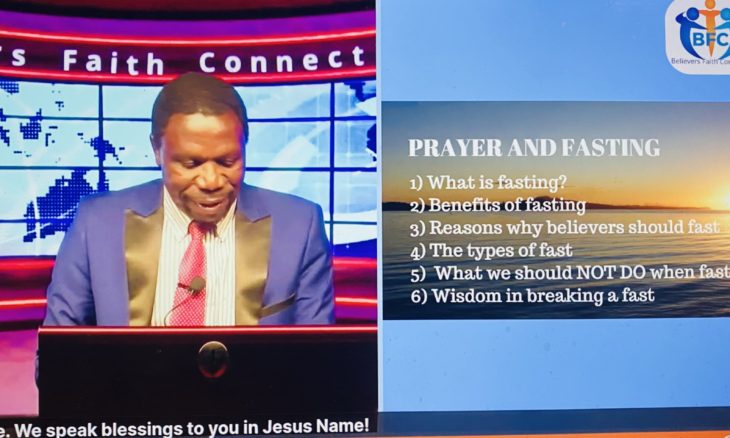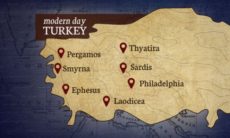What is fasting? Should all believers fast? What are Biblical reasons for fasting? How Long should one fast to get results?
Prayer and fasting can be defined as voluntarily going without food or other fleshly cleaving’s in order to focus on prayer and fellowship with God. When prayer and fasting are combined and dedicated to God, they reach their full effectiveness. This is a way of forcing yourself to focus on God and rely on him for the strength, provision and wisdom you need.
God set up times of feasting and times of fasting in the Bible. He likes and blesses both of these things. God doesn’t want us to miss times of feasting and celebration with our families and communities.
While fasting is not necessary for salvation it is essential on one’s Christian walk of faith in this earth and it is highly recommended. Even Jesus expects us to fast.
Although the Bible doesn’t give a direct command on this issue, there are numerous examples of prayer and fasting both in the Old and the New Testaments. Jesus is teaching His disciples the basic principles of godly living in Matthew 6:16. In speaking about fasting, He begins with, “When you fast,” not “If you fast.”
Jesus’ words imply that fasting needs to be regular practice in His followers’ lives.
Jesus said in (Matthew 6:16-18) “And when you fast, do not look gloomy like the hypocrites, for they disfigure their faces that their fasting may be seen by others. Truly, I say to you, they have received their reward. But when you fast, anoint your head and wash your face, that your fasting may not be seen by others but by your Father who is in secret. And your Father who sees in secret will reward you.”
Fasting that is built on the foundation of a right heart and spirit brings us closer to God first and foremost and fasting built on pride and selfishness return empty and void.
Benefits and reasons for prayer and fasting
First we need to understand that fasting is not about twisting God’s arm…
In Isaiah 58:2, God gives us His heart for true fasting: “Yet they seek me daily and delight to know my ways, as if they were a nation that did righteousness and did not forsake the judgment of their God; they ask of me righteous judgments; they delight to draw near to God.
God honors the heart, not the act
Fasting should be first and foremost about delighting in drawing near to God and coming to Him with a full heart and NOT just about approaching Him with an empty stomach to get something. The motive must be right.
If our motives in fasting are to get only the material things, we miss the point. Fasting has nothing to do with twisting God’s arm by saying, “Lord, I met the terms you asked for. Give me what I want.”
Prayer and fasting should first and foremost about receiving a greater experience of Jesus Christ and the Holy Spirit and being open to His miraculous move in our lives according to God’s will.
It will help you to overcome sin, bad habits, and help open your eyes to things that are displeasing to God in your life. Fasting and prayer is a time to separate yourself from your regular patterns and from things of the world and come closer to the Lord.
There are so many other benefits and reasons for fasting and so many ways to do it. Find out the best way for you. Find out the reason for your fasting and how long you plan on doing it for.
Main reasons why believers should fast
- To prepare for ministry. Jesus spent forty days and nights in the wilderness fasting and praying before He began God’s work on this earth. He needed time alone to prepare for what His Father had called Him to do (Matthew 4:1-17; Mark 1:12-13; Luke 4:1-14).
- To seek God’s wisdom. Paul and Barnabas prayed and fasted for the elders of the churches before committing them to the Lord for His service (Acts 14:23).
- To show grief. Nehemiah mourned, fasted, and prayed when he learned Jerusalem’s walls had been broken down, leaving the Israelites vulnerable and disgraced (Nehemiah 1:1-4).
- To seek deliverance or protection. Ezra declared a corporate fast and prayed for a safe journey for the Israelites as they made the nine-hundred- mile trek to Jerusalem from Babylon (Ezra 8:21-23).
- To repent. After Jonah pronounced judgment against the city of Nineveh, the king covered himself with sackcloth and sat in the dust. He then ordered the people to fast and pray. Jonah 3:10 says, “When God saw what they did and how they turned from their evil ways, He relented and did not bring on them the destruction He had threatened.”
- To gain victory. After losing forty thousand men in battle in two days, the Israelites cried out to God for help. Judges 20:26 says all the people went up to Bethel and “sat weeping before the Lord.” They also “fasted that day until evening.” The next day the Lord gave them victory over the Benjamites.
- To worship God. Luke 2 tells the story of an eighty-four-year-old prophetess named Anna. Verse 37 says, “She never left the temple but worshiped night and day, fasting and praying.” Anna was devoted to God, and fasting was one expression of her love for Him.
Why believers are slow or don’t consider fasting as necessary
Despite biblical examples throughout Scripture, many Christians are slow to fast. I believe there are three main factors that cause believers to be hesitant
- Fear. They’re afraid. Afraid of the unknown. Afraid of feeling hunger pangs. Afraid of starting and not finishing. Afraid of fasting alone. The Enemy has them convinced they could never do it. Instead of looking to the Lord’s strength for help, they become consumed with their own weaknesses and paralyzed by fear.
- Ignorance. Many Christians simply have not been taught about the importance of seeking God in this way. Churches often do not encourage fasting, and in many cases never even mention it from the pulpit. For example, I grew up in a Bible-believing church, but I don’t recall hearing a message on fasting until I was an adult.
- Rebellion. A large segment of the Christian population is aware of the benefits of fasting, yet they’re unwilling to do it. Their hearts are hardened when it comes to the idea of fasting. When God invites them to draw near, they dig their heels into the ground and refuse to obey.
Dr. Bill Bright, founder of Campus Crusade for Christ, was a firm believer in the power of prayer and fasting. In his guide Why You Should Fast, he listed the following reasons for seeking God through self-denial.
- Fasting was an expected discipline in both the Old and New Testament eras.
- Fasting and prayer can restore the loss of the “first love” for your Lord and result in a more intimate relationship with Christ.
- Fasting is a biblical way to truly humble yourself in the sight of God.
- Fasting enables the Holy Spirit to reveal your true spiritual condition, resulting in brokenness, repentance, and a transformed life.
- Fasting will encourage the Holy Spirit to quicken the Word of God in your heart and His truth will become more meaningful to you.
- Fasting can transform your prayer life into a richer and more personal experience.
- Fasting can result in a dynamic personal revival in your own life and make you a channel of revival to others.
Many times, we don’t fast because we’ve lost our spiritual appetite. John Piper says, “The absence of fasting is the measure of our contentment with the absence of Christ.” Piper adds, “If we don’t feel strong desires for the manifestation of the glory of God, it is not because we have drunk deeply and are satisfied. It is because we have nibbled so long at the table of the world. Our soul is stuffed with small things, and there is no room for the great.”
Click the links below to check out the recent posts on demand…
Download Audio
Download PDF









